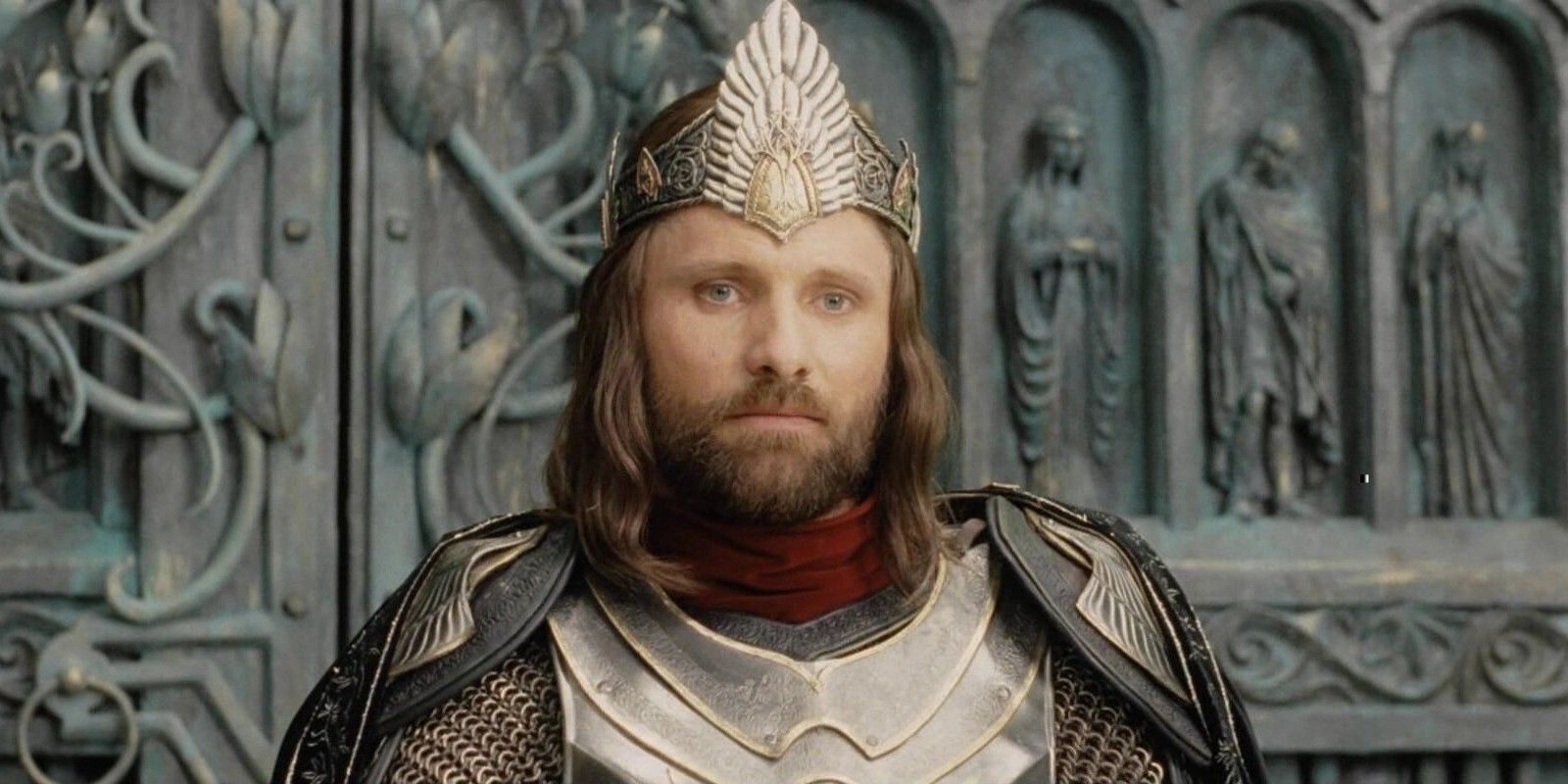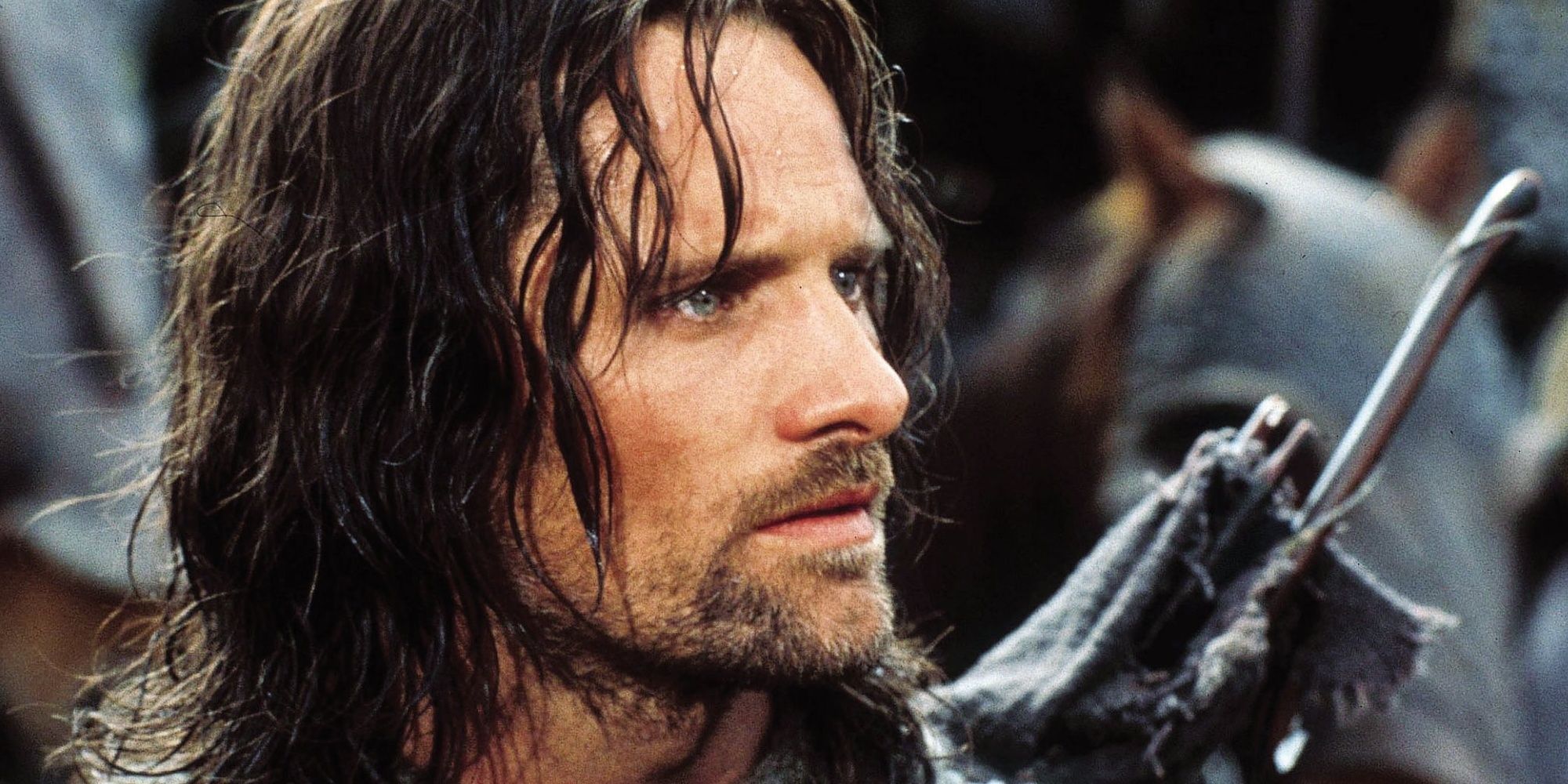Why does Aragorn have multiple names in The Lord of the Rings? Portrayed by Viggo Mortensen for Peter Jackson's movie trilogy, Aragorn is a vital character in J.R.R. Tolkien's fantasy epic. First appearing as a weathered and formidable ranger friend of Gandalf's, Aragorn's true identity is eventually revealed and The Return of the King is centered around the ascension of Aragorn to the throne of Gondor. Considerably older than he looks, Aragorn is a figure whose rough appearance and solemn demeanor barely conceal his noble heritage and heroic personality, and come the end of The Lord of the Rings, the heir of Isildur has taken his rightful place with Arwen by his side.
Although Aragorn is the character's birth name, it isn't his only moniker in the story. When Frodo and the other Hobbits first meet him, Aragorn is introduced as "Strider."A third name arises when Aragorn finally becomes king following Sauron's defeat. The newly-crowned ranger is christened King Elessar, a name by which he is known until death. Aragorn's multiple names after more obvious in Tolkien's originals books, as the movies don't directly refer to Elessar.
The Strider name serves several purposes. As the rightful heir to the man who defeated Sauron, Aragorn was a fated target of the Dark Lord and his various agents, and learned to conceal his identity after leaving the sanctuary of Rivendell to become a ranger. Aragorn is a royal name in Middle-earth, and anyone with even the slightest knowledge of Gondor's monarchy would've suspected something was amiss. Nevertheless, Aragorn didn't come up with "Strider" himself; this was a nickname given by the locals of towns he frequented, especially the residents of Bree. Aragorn took the name as a slight, and this could be because of the allusion to his Númenorean heritage. The Númenor were of greater physical stature than the Bree-folk, and some even used a more insulting term - Longshanks. However, "Strider" likely also refers to Aragorn's exploits as a ranger and his vast journeys across Middle-earth. During this period, Aragorn used "Thorongil" as an alias when necessary, but "Strider" seemed to stick more readily.
The origins of the Elessar name are more deeply intertwoven with Arda's long history. Translating to "Elfstone," the Elessar is an ancient jewel of the Elves that comes into the possession of Galadriel. In Tolkien's books, the Elessar is passed from Galadriel to Aragorn while the Fellowship are visiting Lothlórien. Many years prior, it was foretold that Galadriel would eventually bequeath the Elfstone to a man who would go by the name Elessar, so when Aragorn finally fulfills his destiny, he becomes King Elessar in recognition of the elvish honor. Jackson's movies likely didn't include Aragorn's Elessar title because the Elfstone itself was replaced with Arwen's pendant.
Aside from the main three, Aragorn adopts some other names during his lifetime. When establishing his own royal house, the king chooses the name Telcontar, which is merely "Strider" translated into an elvish tongue. This idea was inspired by Pippin, who insisted on calling Aragorn "Strider" long after discovering his real name. Lastly, a young Aragorn was brought up as Estel, loosely meaning "hope." This was only to hide Aragorn's lineage from himself, and was dropped once he came of age and Elrond revealed the truth.
Aragorn isn't the only Lord of the Rings character to be given alternate names. Gandalf was once known as Olórin, Sauron was originally Mairon and Melkor became Morgoth. This is largely because Tolkien's characters typically undergo somewhat of a rebranding after taking on a new position (such as Aragorn becoming King), changing their form (as Olórin did in becoming Gandalf), or switching allegiance from light to dark (like Sauron and Morgoth). Tolkien himself was an expert in languages, and names are deeply important to The Lord of the Rings, perhaps explaining why the likes of Aragorn are called different things under different circumstances.


